Noble Banadda
ID:
|
FOOD and Local, Agricultural, and Nutritional Diversity
REFNo: A95ES
To develop, implement, and validate innovative, scalable, and sustainable technologies aimed at supporting the nutrition performance of local food systems in Africa, while strengthening agro-biodiversity and food diversity as well as diversity of healthy diets
|
Uganda |
2020-11-30 |
2023-11-30 |
Agricultural Sciences |
|
Non-degree Award |
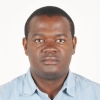
|
CHARLES BENSTONS IBINGIRA RUKAMBURA
ID: UNCST-2021-R008521
|
Determination and characterisation of viral load and antibody profiles in samples from multiple sites of COVID-19 patients in Uganda
REFNo: HS1035ES
4 Study Objectives
This study will aim to determine viral load and antibody production / levels in diverse samples from COVID-19 patients.
Specific aims:
1. Determine and compare virus levels in blood, saliva, naso/oro-pharyngeal swabs, urine, and stool of COVID-19 patients.
2. Determine and compare antibody levels (IgM, IgG & IgA) in blood, saliva, naso/oro-pharyngeal swabs, urine, and stool of COVID-19 patients.
3. Determine and assess neutralising antibody (IgG & IgA) activity (in plasma, naso-phargygeal, saliva samples respectively) from COVID-19 patients.
|
Uganda |
2020-11-30 |
2023-11-30 |
Medical and Health Sciences |
|
Non-degree Award |

|
Atukunda Gilbert
ID: UNCST-2020-R014643
|
Analysis of Workplace Practices of Educational Leadership and Management Graduates of Aga Khan University-IED, EA in Uganda.
REFNo: SS559ES
The objective of the study is to examine how Educational Leadership and Management graduates of Aga Khan University-IED, EA have transformed their workplace practices using the knowledge and skills obtained from the course.
|
Uganda |
2020-11-27 |
2023-11-27 |
Social Science and Humanities |
|
Degree Award |
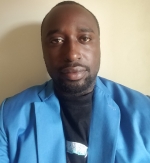
|
Nathan Kenya-Mugisha
ID: UNCST-2021-R013752
|
An Evaluation of the Pediatric Discharge Process following Hospital Admission with Sepsis/Severe Infection in Uganda
REFNo: HS928ES
The primary objective of this study is to evaluate the typical pediatric discharge process at a representative sample of hospitals in Uganda. The study will be guided by the following specific objectives.
Specially we intend to:
1. To assess the readiness of health facilities in providing minimum standard discharge care.
2. To assess health workers practices in the discharge care processes
3. To determine health worker perceptions of the quality of discharge processes.
4. To explore patient caregiver perceptions of the quality of discharge care experienced while their child was treated at the health facility.
|
Uganda |
2020-11-27 |
2023-11-27 |
Medical and Health Sciences |
|
Non-degree Award |
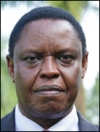
|
Anthony Batte
ID: UNCST-2022-R011127
|
Prevalence of hypertension, HIV and Hepatitis B among participants of the world kidney day 2020 health screening in western Uganda (HHH Study)
REFNo: HS978ES
1. To describe the prevalence of hypertension, HIV and hepatitis B among participants of the world kidney day 2020 health screening in western Uganda
2. To evaluate the predictors of hypertension, HIV and hepatitis B among participants of the world kidney day 2020 health screening in western Uganda
|
Uganda |
2020-11-27 |
2023-11-27 |
Medical and Health Sciences |
|
Non-degree Award |
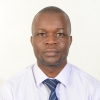
|
Emmanuel Kaggwa Henry
ID:
|
PEDAGOGICAL LEADERSHIP APPROACHES, LEARNING ENVIRONMENT AND ACADEMIC PERFORMANCE OF STUDENTS IN SECONDARY SCHOOLS: A CASE STUDY OF NAKASEKE DISTRICT-UGANDA
REFNo: SS627ES
1. To assess the state of academic performance of students in the secondary schools of Nakaseke district.
2. To establish the correlation between pedagogical leadership approaches and academic performance of students in Nakaseke district.
3. To examine the influence of learning environment on academic performance of students in Nakaseke district.
4. To establish a new, effective and practical pedagogical leadership approach that will enhance academic performance of students in Nakaseke district.
|
Uganda |
2020-11-27 |
2023-11-27 |
Social Science and Humanities |
|
Degree Award |
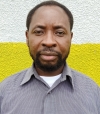
|
William Buwembo
ID: UNCST-2022-R009661
|
Anti-COVID-19 immunoglobulins G and M in blood specimens collected before lockdown at two urban clinics of Kampala, Uganda
REFNo: HS995ES
1. To determine the COVID-19 specific sero-prevalence at two urban clinics of Kampala, Uganda.
2. To determine the quality of virus specific antibody IgG in seropositive specimens
|
Uganda |
2020-11-27 |
2023-11-27 |
Medical and Health Sciences |
|
Non-degree Award |
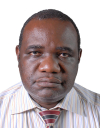
|
Peter Olupot-Olupot Olupot
ID: UNCST-2020-R014798
|
Feasibility and Effectiveness of the National Research Information Management Systems (NRIMS) in Uganda; a Nested study within the Scaling up of capacity of Research Ethics Committees in Uganda (SCRECU).
REFNo: HS1052ES
Main Objective.
To assess the feasibility and effectiveness of the National Research Information Management
System (NRIMS) for effective Research Ethics Committee (REC) review process, facilitate
multiple REC review, national registration and subsequent monitoring of approvals in Uganda.
Specific.
To assess the feasibility and effectiveness of NRIMS for review, registration and
monitoring of research in Uganda.
2. To evaluate the cost economics of implementation of NRIMS.
|
Uganda |
2020-11-27 |
2023-11-27 |
Medical and Health Sciences |
|
Non-degree Award |
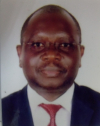
|
Joseph Ochieng
ID:
|
Ethical and social issues for COVID-19 vaccine access in Uganda
REFNo: HS1101ES
The goal of the proposed study is to assess stakeholders’ awareness of ethical and social issues as well as perceptions of priority setting for COVID-19 vaccine accessto stimulate debate in preparation for COVID-19 vaccine and development of a model approach to priority setting in a Ugandan setting.
Aim 1. Assess stakeholders’ awareness of ethical considerations and social issues associated with COVID-19 vaccine access in Uganda
Aim 2. Assess stakeholders’ perceptions on ethical and social issues associated with priority setting for COVID-19 vaccine access in Uganda
Aim 3. Evaluate existing policies and guidelines on priority setting for COVID-19 vaccine access in Uganda
Aim 4. Develop a model approach to priority setting for COVID-19 vaccine access in Uganda
|
Uganda |
2020-11-27 |
2023-11-27 |
Medical and Health Sciences |
|
Non-degree Award |

|
Grace Brown
ID:
|
Sustainable Coffee Farming: Agricultural Growth, Cultural Shift, and Its Direct Effect on Decreased Gorilla/Human Disease Transmission
REFNo: NS87ES
To record the influence of local agricultural shifts on the health of gorilla group populations within Bwindi.
-Record diseases and illnesses through fecal sample that are linked to some sort of human interaction, whether it be direct or through livestock.
-Determine how coffee farmers perspectives on gorilla conservation have changed, if at all, with their participation in Gorilla Conservation Coffee.
-Study how farmers with steadier incomes can better support sustainability and conservation efforts within Bwindi Impenetrable National Forest.
|
USA |
2020-11-26 |
2023-11-26 |
Natural Sciences |
|
Non-degree Award |

|
Claire Akwongo Julie
ID:
|
Prevalence, Risk factors of exposure and Socio-Economic impact of Peste des Petits Ruminants (PPR) in Karenga District, Karamoja Region, Uganda
REFNo: A71ES
1. Determine the sero-prevalence of anti-SRM in goats and sheep in Karenga District using the Competitive Enzyme-linked Immunosorbent assay.
2. Determine the socio-economic impact of PPR amongst communities in Karenga using participatory epidemiology.
3. Establish the risk factors associated with the occurrence and spread of PPR in Karenga District using participatory epidemiology.
|
Uganda |
2020-11-26 |
2023-11-26 |
Agricultural Sciences |
|
Degree Award |

|
Chris Opesen C
ID:
|
EXPLORING THE PHILANTHROPY PRACTICE IN UGANDA
REFNo: SS471ES
The overall objective of this study is to explore the landscape for and of philanthropy in Uganda. The study has the following specific objectives:
I.To conduct a legal and policy analysis for philanthropy in Uganda including tax laws. Expected outputs
II.To identify local philanthropic initiatives in the five (5) districts of Kampala, Mbarara, Gulu, Arua and Masaka.
III.To establish the factors that enhance and hinder local philanthropy.
IV.Lastly, to develop recommendations for strengthening philanthropic practice in Uganda, as well as emerging research areas.
|
Uganda |
2020-11-26 |
2023-11-26 |
Social Science and Humanities |
|
Non-degree Award |

|
Esther Buregyeya
ID: UNCST-2020-R014116
|
Promoting hand hygiene through use of locally-produced alcohol based handrub in health facilities in Wakiso District-Uganda
REFNo: HS817ES
i) To develop a behavioral intervention to foster hand hygiene compliance using locally produced alcohol handrub in HCFs in Uganda.
ii) To assess the acceptability, feasibility and effect of locally-produced alcohol handrub on HH compliance among health care workers in primary health care facilities, Uganda.
(ii) To assess the cost of fostering HH through use of locally-produced
alcohol-based hand-rub.
|
Uganda |
2020-11-26 |
2023-11-26 |
Medical and Health Sciences |
|
Non-degree Award |
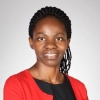
|
PAUL MBAGO
ID:
|
Bovine mastitis on selected farms in Kamwenge District: Prevalence and antibiograms of the associated bacteria
REFNo: A86ES
To determine the prevalence of bovine mastitis, antibiograms of associated bacteria and investigate presence of MecA and TetM resistance genes on selected farms in Kamwenge District.
|
Uganda |
2020-11-26 |
2023-11-26 |
Agricultural Sciences |
|
Degree Award |
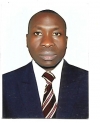
|
Agabirwe Patience
ID:
|
INFORMATION PRACTICES OF STUDENTS WITH VISUAL IMPAIRMENT IN PUBLIC UNIVERSITY LIBRARIES IN UGANDA USING DIGITAL INFORMATION RESOURCES
REFNo: SIR49ES
To explore the information practices of students with visual impairment (SWVI) as they seek, access and use Digital information resources (DIRs) in public University libraries and therefore propose strategies to improve the utilization of DIRs by SWVI in University libraries of Uganda.
|
Uganda |
2020-11-26 |
2023-11-26 |
Engineering and Technology |
|
Degree Award |
.jpg)
|
Lina Sara Mathew Alonga Sara Mathew
ID:
|
Safety Profiling of Traditional Antimalaria Plant, Aristolochia bracteolata Lam. Commonly used among Communities of Jubek State, South Sudan
REFNo: HS851ES
i. To document the preparation methods, uses and effects of A. bracteolata antimalarial plant among the communities in Jubek State,
ii. To identify and quantify the levels of aristolochic acid in A. bracteolata and in preparation as used by the communities in South Sudan,
iii. To determine the general toxicity and nephrotoxicity of A. bracteolata community preparation using Laboratory animal models
|
South Sudan |
2020-11-26 |
2023-11-26 |
Medical and Health Sciences |
|
Degree Award |
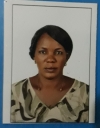
|
owino ambrose
ID:
|
“Exploration of mathematics
teachers’ pedagogical content knowledge for teaching subtraction strategy: A case
study in Kwania District, Ugandaâ€
REFNo: SS554ES
The purpose of this study is to explore mathematics teachers’ pedagogical content knowledge for teaching subtraction strategies.
|
Uganda |
2020-11-26 |
2023-11-26 |
Social Science and Humanities |
|
Degree Award |
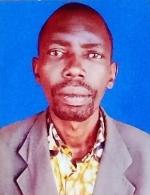
|
Richard Mugambe Kibirango
ID:
|
The impact of an mhealth and environmental cues intervention on hand hygiene practice among healthcare workers in the greater Kampala metropolitan area. A cluster randomised trial.
REFNo: HS882ES
1. To explore the opportunities for enhancing healthcare workers’ hand hygiene practices in HCFs in the GKMA.
2. To explore the barriers for enhancing healthcare workers’ hand hygiene practices in HCFs in the GKMA.
3. To compare the impact of mobile phone WASH text messages with that of environmental cues on hand hygiene practice among health workers in HCFs in the GKMA.
|
Uganda |
2020-11-26 |
2023-11-26 |
Medical and Health Sciences |
|
Non-degree Award |
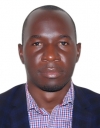
|
Emma Ariyo S
ID:
|
Examination of Sociocultural Boundaries and Gender construction in Women’s Rugby in Uganda
REFNo: SS579ES
1. Contributing to the body of literature on women rugby players’ use of sport to navigate socio-cultural structures in society.
2. Providing an in-depth understanding of how female participation in sport impacts multiple identities [relations] and relationships [social positioning] in reference to young women and their families and communities.
3. Inform educators, activists, policy makers and sport administrators’ decisions about developing sport opportunities for women in Uganda.
|
Uganda |
2020-11-26 |
2023-11-26 |
Social Science and Humanities |
|
Degree Award |

|
Edith Akankwasa
ID:
|
Implementing a child disability prevention, detection and rehabilitation project in central Uganda: Learning and experiences from the field
REFNo: HS896ES
i. To establish if amongst the intervention districts, those districts that show stronger implementation of birth defect and child disability prevention, child disability detection, management and rehabilitation interventions as envisaged perform better on key birth defect detection and child disability rehabilitation indicators compared to those intervention districts with “a lower level of implementation†(i.e., evidence of “dose-responseâ€).
ii. To determine if, after three years, districts in project overall intervention area will show more improvement in coverage from baseline on key birth defect and child disability prevention, disability detection, management and rehabilitation indicators compared with those districts in the comparison area.
iii. To appraise the processes used in enhancing the delivery of the birth defect and child disability prevention, detection and rehabilitation services where they are being implemented.
iv. To explain in detail how and why the strategies employed led to the observed coverage in access to and utilization of the CDR project services in the implementation districts.
v. To characterize the stakeholders for birth defect and child disability prevention, detection and rehabilitation services.
vi. To document the barriers and facilitators used in the implementation of the CDR project along with how the barriers can be addressed
|
Uganda |
2020-11-26 |
2023-11-26 |
Medical and Health Sciences |
|
Non-degree Award |
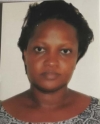
|
| View |
|
Sort By: |
|
|
|
| |
|